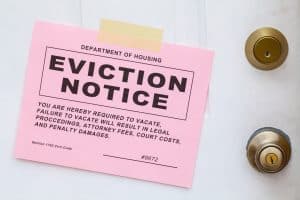As pandemic lifts, landlords await relief on evictions

Everyone has an experience with a bad landlord. It’s like having a bad boss. It poisons your outlook on life.
But it also helps to acknowledge that most landlords are decent, small-business owners working on tenuous profit margins. The pandemic has torn through their daily affairs.
Now, amid signs our COVID-19 cloud is lifting and businesses that depend on public gatherings are slowly coming to life, landlords wonder if they’re being left behind in official recovery plans.
They had to shoulder a strange burden of giving away their product for free, something not required of the pharmacy or the grocery or the public utility as people were dealing with hard times and personal loss.
For more than a year, apartment building owners haven’t been able to evict people for not paying rent. Gov. J.B. Pritzker imposed an eviction moratorium at the pandemic’s onset, contending that when everyone was being urged to stay home, it wasn’t good policy to take away the home. Fair reasoning, but what about now?
Corey Oliver has 145 apartments on the city’s South and West sides, areas where many people lost their jobs or had their hours cut. He figures about 60% of his tenants are in arrears on rent, but he said most of them he can work with.
The trouble, he said, is the 15% of his tenants who haven’t paid him a dime in months. “They don’t communicate. We don’t hear from them,” he said. Oliver said it’s not even possible to connect them to rental assistance help. Going that route would acknowledge a liability, and an indefinite gift of free accommodations sounds better.
“There is no recourse for a housing provider,” Oliver said. “We’re always the monsters because people say we just want people out. But we don’t want to evict people. The vast majority of building owners are mom-and-pop operations. The tenants have our cellphone numbers. We’re out there cutting the grass and doing our best to provide comfortable housing.”
Landlords still have their own bills. There is no moratorium on mortgage or maintenance costs. Property tax payments can be delayed under Cook County’s rules, but they must be made. There are rent scofflaws in every neighborhood, but owners of multiple high-rises can absorb the loss more easily.
The smaller landlords, Oliver said, often come from the neighborhoods where they’ve invested. It’s the path he followed, having gone into the real estate business with his father, Anthony Oliver, formerly an executive director at StreetWise, the magazine for homeless people.
When landlords can’t collect a chunk of their income, they have little recourse but to stop paying workers and cut costs for upkeep, potentially harming the housing stock in neighborhoods already facing multiple challenges.
Oliver said the eviction ban has given rise to another problem: squatters who might have been given the keys by a departing tenant. They aren’t on any lease, but Oliver said police generally won’t help get them out, categorizing any complaint as a landlord-tenant matter they won’t touch during the pandemic.
He cited the case of a 20-unit building on the South Side that he managed for family owners. Oliver said 15 units were occupied when everybody stopped paying rent and some people moved in relatives. Attempts to deal with them were met by men with guns, Oliver said. He explained the owners had no recourse but to pay their bank to take it over. The county had a ban on foreclosures that was lifted late last year, but some lenders prefer to avoid the court’s backlog.
The Neighborhood Buildings Owners Alliance, representing smaller landlords around Chicago, is urging Pritzker to gradually lift the eviction moratorium due to expire May 1. Pritzker has extended it with each 30-day renewal of his emergency orders dealing with the pandemic.
Spokesman Clint Sabin said to deal with the squatter problem, the group wants Pritzker to amend any order so that it covers “lessees,” those covered by the lease, versus the general term used, “residents.” It also asked Pritzker to detail the public health metrics he wants to see before allowing evictions.
The governor’s office didn’t respond to questions about the moratorium.
In a survey of alliance members, one in five respondents said at least 25% of renters late on payments haven’t communicated about their situation. Most landlords cited a need to cut outlays for capital improvements and repairs, and a third said they were losing money every month. Sabin said about 400 members responded to the survey conducted during the first quarter of the year.
“We don’t want to evict people, but we do want to regain control over our buildings,” said the group’s president, Mike Glasser.
Source: chicago.suntimes.com















 Accessibility
Accessibility